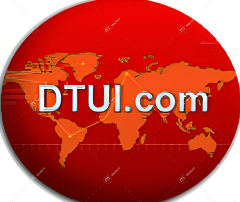High-impact training facilitation skill
Formats include classroom (DELA 400A two days), Online (DELA 400 B). The purpose of this course is to provide participants with the skills needed to successfully train even the most difficult group of participants. One of the most challenging training courses is mandatory training that is undervalued

DTUI.com
Course Overview
- Instructor: TBD
- Length: 10 Modules
- Office hours: TBD
- Grade: Pass/Fail (78%)
- Course Access: 365 days/ 24 hours per day/ 7 days a week
- Format: Online
- Contact: (415) 692-0121 (Business Office); admin@dtui.com
- Increase your awareness and understanding of the pitfalls of facilitating diversity training.
- Increase your ability to facilitate diversity training focusing on managing emotionally charged topics.
- Provide you with facilitation skill feedback.
- Increase understanding of how to enhance your audience’s engagement and learning.
- The overall goal is to offer solutions for engaging your audiences in ways that increase engagement and learning.
- Appraise their training and facilitation skills
- Illustrate the use of adult learning techniques
- Demonstrate the use of active learning techniques
- Demonstrate an ability to manage “hot topic” discussions.
- Create a video using facilitation techniques with an audience.
Materials
Textbook
- The Accelerated Learning Handbook: A Creative Guide to Designing and Delivering Faster, More Effective Training Programs. Dave Meier (2000), McGraw-Hill, New York.
- Other Resources include Instructional videos, articles, worksheets and templates.
- The diversity practitioner’s role & responsibilities
- Self-Assessments
- The Stage of Inclusive Competence Framework™
- Designing & Developing a High-Impact Diversity & Inclusion Initiative
- Linking the Cultural Diversity Initiative to the Organization’s Bottomline
- Assessing Inclusion Competence Gaps & Barrier Analysis
- Sustainable Diversity Initiative Implementation
Grading
- Discussion board assignments that require sharing your answers with the other participants to learn from each other.
- Application assignments that require using what is learned to design and develop training project.
Technical Needs
- Computer with high-speed internet access
- Access to the online meeting platform (Please try this at least two days before the first lecture/discussion session to manage any technical difficulties beforehand).
- Telephone access (preferably with earphones)
- MS Word (Do not submit files in pdf, please)
Course module details
COURSE LOGISTICS
MODULE 1 Introduction
MODULE 2 Learning Needs and Active Learning
MODULE 3 Adult Learning Principles
MODULE 4 Adult Learning Preparation Techniques
MODULE 5 Adult Learning Performance Techniques
Module 6: Active Learning Facilitation Preparation
Module 7: Asking Questions, Question Asking, and Games
Module 8: Active Learning Facilitation Project
Module 9A: Final Project
Kopenhavn
This course provides participants with a framework for transforming an organization into an engaged, productive, and inclusive workforce
Why students love this course
Still Have Any Questions?
Check out the FAQs.
The DELA difference is that our training is designed to develop professional awareness, attitude (inclusive values and beliefs), knowledge, and skills. A comprehensive examination only assesses your knowledge. Each DELA program is designed to develop professional skills rather than cover only the knowledge you need to pass a final exam. Our certification recipients boast about having designed and developed a strategic plan, a diversity training, or a diversity recruitment plan upon completing their program. In that way, the knowledge you is put into practice. Instructors provide the feedback needed to complete the projects successfully. One graduate boasts that she developed a cultural diversity strategic plan by the end of the CDP training, for example. Her organization adopted the plan because she included staff during the design and development phases. A police officer developed cultural diversity training for officers in her department. The product you develop can be put into your professional portfolio along with the credentials that you earn..
>The CDE is designed and developed for individuals serving in cultural diversity leadership roles within an organization. The individual typically reports directly to the head of the organization, such as the CEO or president. The graduate’s range of potential influence within the organization is considerable compared to a diversity manager or someone with diversity and inclusion (D&I) expertise reporting to a middle manager, such as the human resource manager.
Yes, the distance learning format was the first format we offered the programs back in 1998. Now we use a state of the art learning platform called Canvas Instructure. You can begin the first course in each online program as soon as you register. There is also a weekly – strictly voluntarily – live one-hour video conferencing session for the course. It either meets either on a Tuesday or Thursday. You do not have to attend. It there when you want to attend. You can ask questions, meet other participants, and get an overview of the current module being covered in the course.
That is an excellent question. As of August 1, 2020, federal and state guidance on how to reopen live classroom training sessions is insufficient to even guess at start dates. The pandemic has not been arrested and that is likely the best turn of events that will offer that insight. Please check back as often as necessary or sign up to receive our newsletter at the bottom of this page.
In the meantime, online courses have, understandably, become very possible. In addition, we are currently considering a more intensive live, online experience (e.g., fours hour per day over two days for each course). If that is something you are interested in learning more about, please contact us.
Diversity Certification refers to the credentialing of professionals to serve in management or executive level diversity and inclusion leadership roles.






